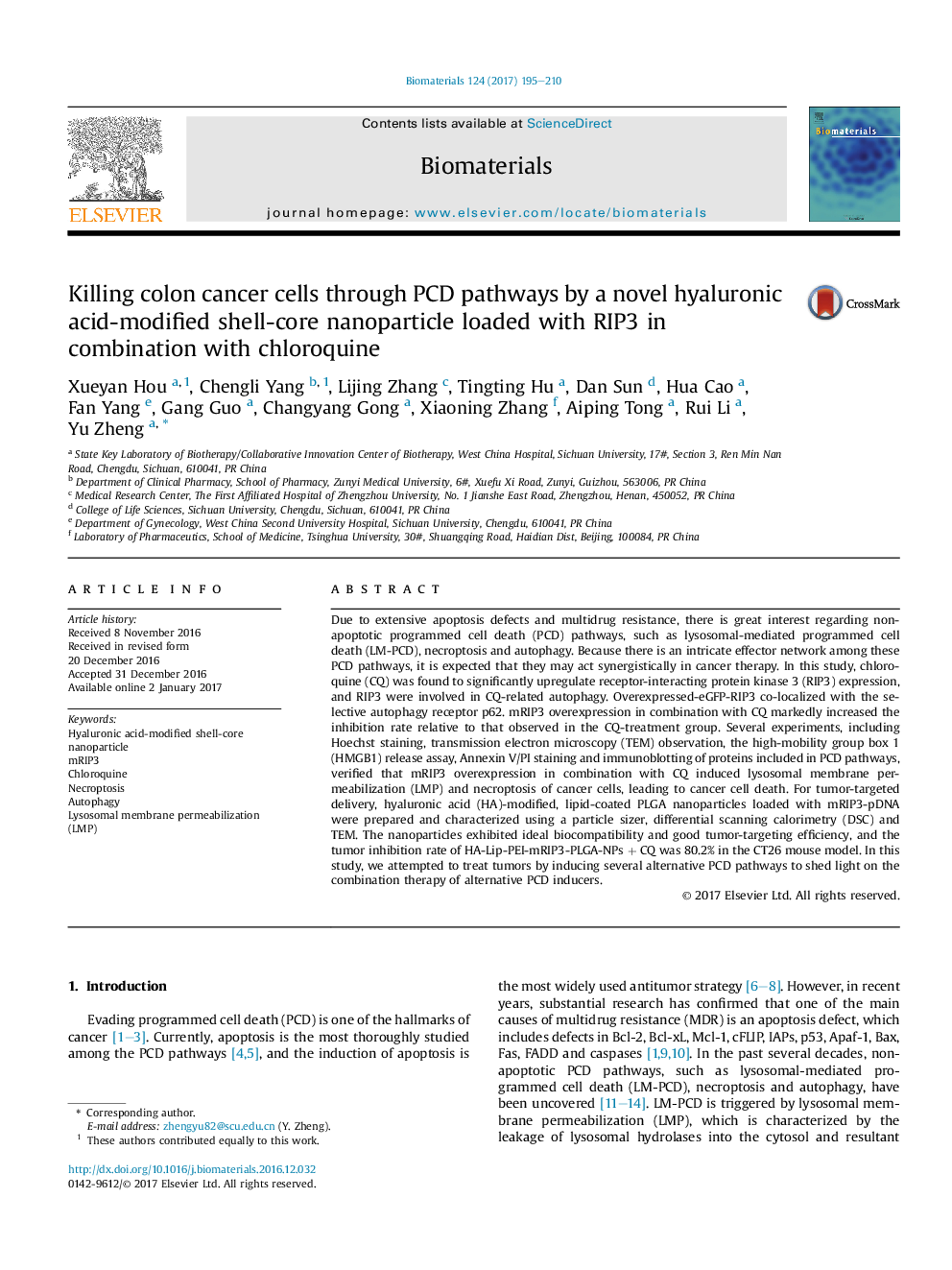| Article ID | Journal | Published Year | Pages | File Type |
|---|---|---|---|---|
| 6450846 | Biomaterials | 2017 | 16 Pages |
Due to extensive apoptosis defects and multidrug resistance, there is great interest regarding non-apoptotic programmed cell death (PCD) pathways, such as lysosomal-mediated programmed cell death (LM-PCD), necroptosis and autophagy. Because there is an intricate effector network among these PCD pathways, it is expected that they may act synergistically in cancer therapy. In this study, chloroquine (CQ) was found to significantly upregulate receptor-interacting protein kinase 3 (RIP3) expression, and RIP3 were involved in CQ-related autophagy. Overexpressed-eGFP-RIP3 co-localized with the selective autophagy receptor p62. mRIP3 overexpression in combination with CQ markedly increased the inhibition rate relative to that observed in the CQ-treatment group. Several experiments, including Hoechst staining, transmission electron microscopy (TEM) observation, the high-mobility group box 1 (HMGB1) release assay, Annexin V/PI staining and immunoblotting of proteins included in PCD pathways, verified that mRIP3 overexpression in combination with CQ induced lysosomal membrane permeabilization (LMP) and necroptosis of cancer cells, leading to cancer cell death. For tumor-targeted delivery, hyaluronic acid (HA)-modified, lipid-coated PLGA nanoparticles loaded with mRIP3-pDNA were prepared and characterized using a particle sizer, differential scanning calorimetry (DSC) and TEM. The nanoparticles exhibited ideal biocompatibility and good tumor-targeting efficiency, and the tumor inhibition rate of HA-Lip-PEI-mRIP3-PLGA-NPs + CQ was 80.2% in the CT26 mouse model. In this study, we attempted to treat tumors by inducing several alternative PCD pathways to shed light on the combination therapy of alternative PCD inducers.
